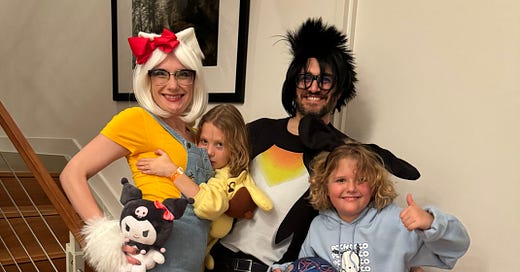How Two Child Psychiatrists Approach Technology with Our Own Twins
What "spending more time with our family" looks like for a family made of physician-tech start up executive parents.
Welcome to The Frontier Psychiatrists. My family and I were so excited to have been asked by our friends Raghu Appasani, M.D., and Larissa May, to interview our kids about their new platform, the Parent Tech Action Coalition (PTAC). And Drs. Muir and MacMillan are excited to see our kids working with Larissa and Raghu! Trent and Quinn decided to ask Princess Mommy and Boring Daddy to join the conversation. What follows is excerpted from that chat.



